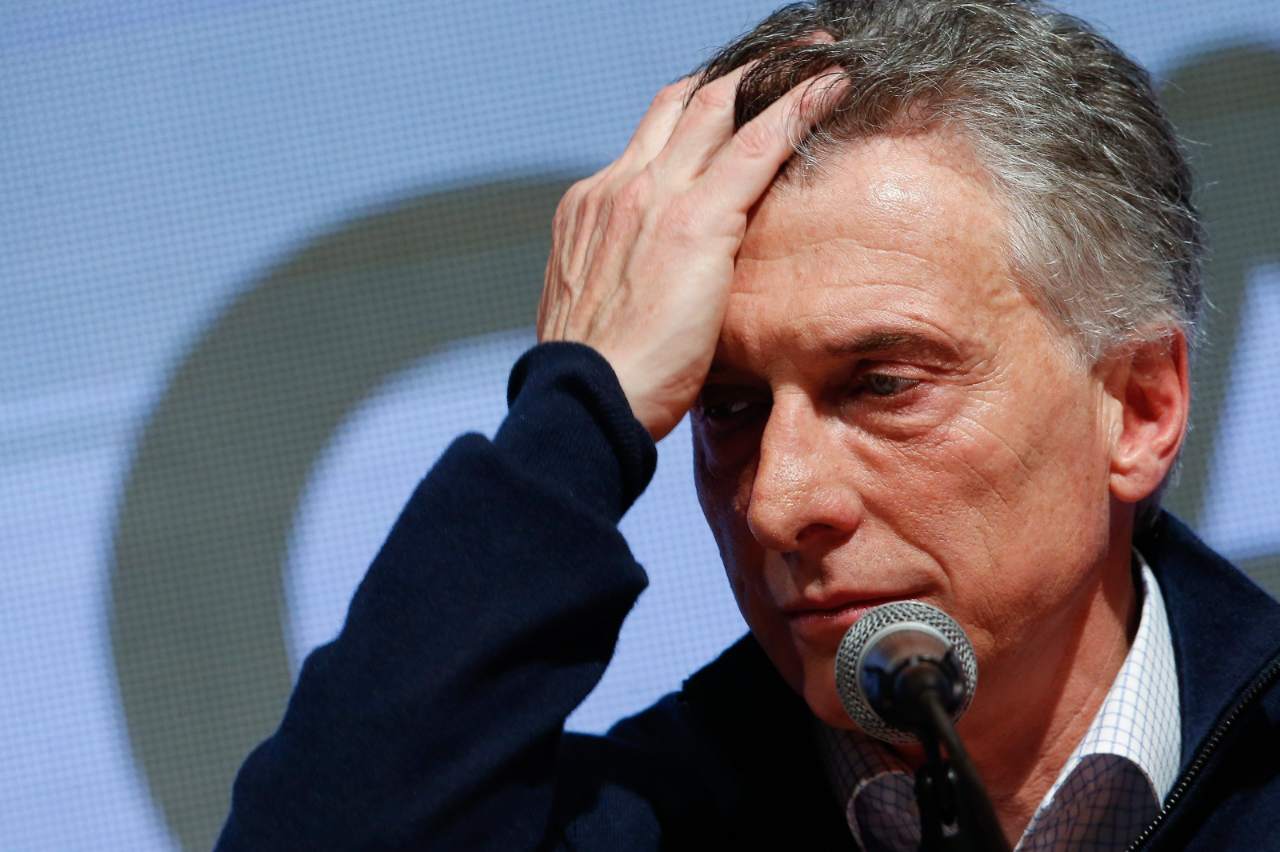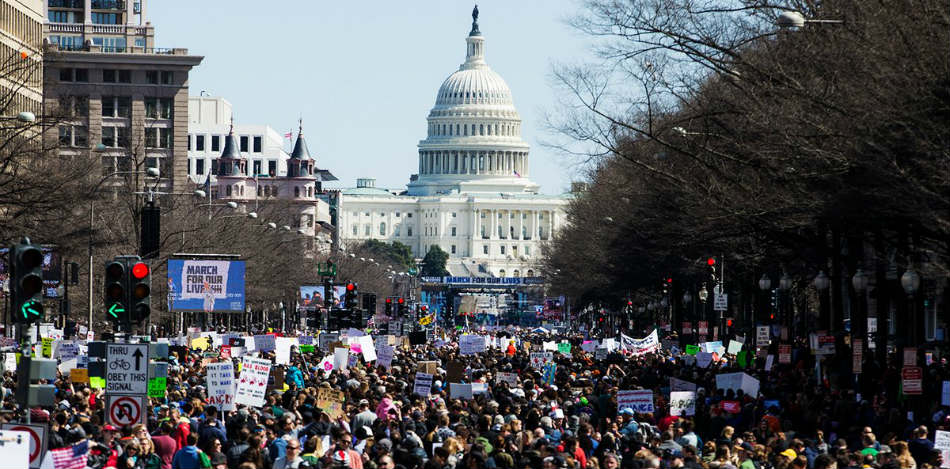
Spanish – A little while ago, I went back to watch my second favorite movie —2001: A Space Odyssey— the first, without a doubt, is the Godfather. In one of the opening scenes, a group of apes, always subdued by local carnivores and other herds, wake up to the disturbing presence of a black monolith. Then, one of the members of the pack appears along with several bones. He begins to swing one until he discovers that the bone can be used as a tool. He strikes and destroys an animal’s skull with the new instrument. The monolith had influenced the group of apes and had led one to discover the weapon with which he could control the other beasts. To be aware of his environment.
Thus, the tools can clearly mold an individual. The mere incidence of discovering a bone and its powers allowed a fortunate ape to became the leader of his herd and the region. The contrary also occurred: After realizing his superiority, the ape forcibly assumed control of the territory. He assassinated the primates who came in his war. His knowledge made him superior, and it is in his best interest to maintain this position.
The instrument —or precisely the knowledge of his environment— allows the man to evolve. In 2001, that entailed the conquest of other planets; presently, all indispensable technologies that have improved the lives of millions of people. Meanwhile, awareness of the environment and its importance has also allowed the construction of dangerous systems. There are models built on artifacts and, at the same time, on the disability or amputation of citizens.
Today, the debate is noisy but timely. Perhaps, it should have taken place long ago. However, since it has not, it becomes urgent today while the enemies of liberty and rationality are laying siege. The recent mass shootings in the United States have driven the formation of a firm and undaunted movement.
On 24th March, thousands of people participated in a sublime demonstration of civic-mindedness in Washington D.C. The March For Our Lives aimed to pressure the political leadership to pass stricter gun control and ostracize the NRA.
It will be hypocritical to scorn the formation of movements such as the one in Washington D.C. however myopic or naive they may be. Experiences such as Venezuela and the lessons from the indispensable Hannah Arendt demonstrate that any expression of civility in the streets is nothing more than the purest exercise of politics. Trump is not unpopular, as polls show, but he must confront an organized and considerable media opposition. It is difficult to ignore and push aside reckless young people like Emma Gonzalez —especially when it comes to a survivor of the recent massacre that shocked a nation.
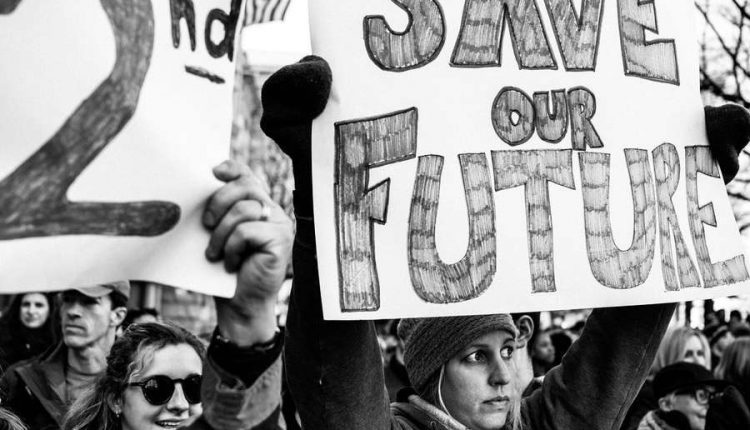
There are many factors that one ought to take into account to have a debate.
Surely it would not be right to assume that the worthy country has been able to maintain an enviable democratic regime thanks to the Second Amendment of the glorious Constitution of the United States. However, it is also true that despotic regimes often resort to strict policies of total prohibition of carrying firearms. The examples are Cuba, Venezuela, and North Korea.
From a perspective close to liberal ideals, it is perhaps immensely absurd to cede to the state monopoly over firearms. It is uncomfortable because it exposes vulnerabilities. Although this vast great thing bears part of the responsibility of protecting citizens, it is immensely risky to leave the individual unarmed facing the excessively armed state.
But it will always sound crazy that in some parts of the United States you can buy a gun as easily as you can exchange bills for a box of cigarettes. For example, how is it sensible that Omar Mateen, the murderer at a nightclub in Orlando, was able to buy a semi-automatic SIG Sauer rifle when he was on a terrorist watch list?
Other questions arise in favor of the right to bear arms when we face this disturbing reality. What would have happened in the nightclub where Mateen shot innocents if someone was armed? Alternatively, what would have occurred at the terrorist attack at the concert in Bataclan, Paris if an attendee was armed?
These questions were raised at that time. The implication seemingly is that the solution is for everyone to walk around with a revolver in their pockets. It doesn’t sound like an ideal society.
Manuel Llamas is a political scientist and journalist. He is also an analyst at the Juan de Mariana Institute and in an article, precisely about the attack in Paris, he stressed that the response to terrorism must be the free carrying of weapons.
“Has anyone stopped to think how nine heavily armed terrorists could prolong their clean shot carnage through the streets of Paris for hours without anyone being able to stop them? How is it possible that at least three of these savages managed to enter a concert hall full of people without any resistance from the security of the premises,” asks Llamas.
It is challenging to confront the reality that the terrorists and misfits we want to keep away from weapons will always find a way to obtain an AK-47 to get entry to heaven with many virgins.
The emergence of a black market is still one of the immediate consequences of bans and controls. Mafia and gangs also emerge with enormous collateral damage. Moreover, perhaps at this stage, after numerous failed trials, hasn’t it been demonstrated that repealing bans usually generate more significant benefits for society?
When we look at the map of estimated firearms per capita, we see that the countries in the northern hemisphere have the maximum number of weapons per individual: Canada, Norway, Germany, Lithuania, Northern Ireland, and Israel are some of these countries. Also, in some countries in the southern hemisphere, such as Australia, people are heavily armed.
In contrast, the population in predominantly unarmed in countries in Africa, the east, and Oceania, except Australia. Citizens are left defenseless facing the state in countries such as Syria where a dangerous regime is reigning or the Philippines where Duerte is running inhumane extermination campaigns.
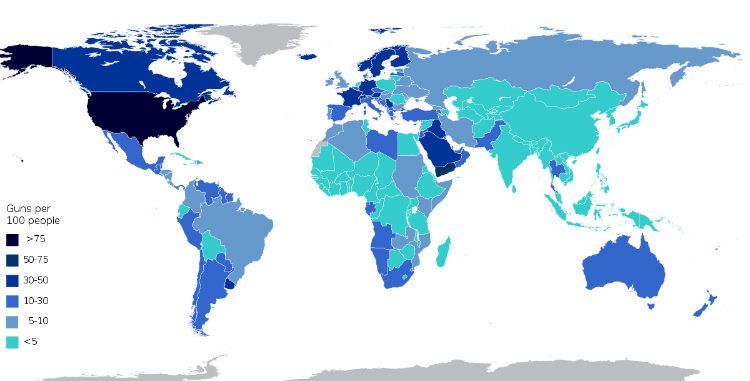
We should also bear in mind that the terrible massacres that gloss the front pages of U.S. newspapers from time to time are not so frequent in countries with enormous freedom to bear arms —such as Austria or Switzerland.
It is a mistake to say, as some of these trendy activists in America do, that the responsibility for the massacres and attacks lies exclusively with the guns. Cameron Kasky, one of the survivors of the massacre at the Parkland School in Florida, told Fox News that “there is no specific mental health problem that makes all these massacres happen, it is the weapon.” In other words, he says that guns “make massacres happen.” I imagine that given the rise of truck attacks in Europe by Islamic terrorist groups, we will now be debating vehicle liability.
The brilliant psychologist and thinker, Jordan B. Peterson, a top-notch polemicist, wisely says, “I think that in the United States the likelihood that firearms legislation will prevent school shootings is basically zero. The school shootings culture doesn’t seem to have manifested itself in other places as much as in the United States. And I can’t say exactly why.”
On the other hand, apart from these terrible events, it must be taken into account that in the United States, the country with the highest number of weapons per inhabitant, the rate of homicides by firearm, excluding accidents and suicides, has fallen steadily for 30 years. A study by the renowned Pew Research Center indicates that the number of murders has fallen from seven per 100,000 citizens in 1993 to 3.6 in 2013.
Also, as political scientist Manuel Llamas writes, “the key is that during this same period the number of firearms in circulation in the American population, far from slowing down, has shot up.”
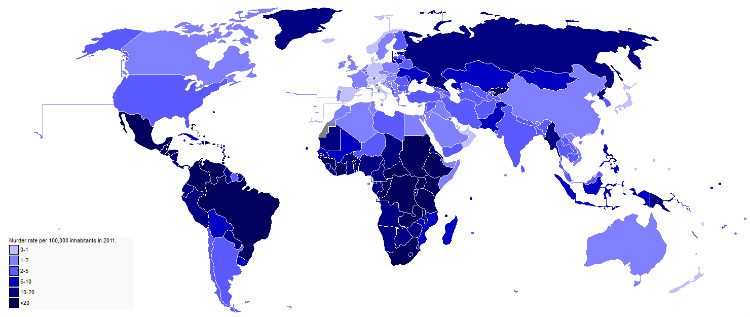
This reality gives rise to essential concerns, such as the one raised by Jordan Peterson. A strong political-social movement organized in the wake of the recent massacres has driven the current debate on arms in the United States. However, the examples and statistics show that there is no close relationship between the freedom to possess weapons and the urge of some insane person to kill any child or teacher he comes across.
Further, this is a debate about the value of freedom, the most supreme of all. In his Magnum Opus, Democracy in America, Tocqueville writes that when society starts abusing freedoms, sooner or later people will land under the feet of despots. The incredibly influential French thinker refers to the freedom to speak, write, and think —specifically, the freedom of the press. Tocqueville, of course, does not write about the right to bear arms. But if he did, wouldn’t he vehemently oppose the destruction of this liberty as enshrined in the Second Amendment to the United States Constitution?
Tocqueville famously and pertinently said, “I admit that I do not feel toward freedom of the press that complete an instantaneous love which one accords to things by their nature supremely good. I love it more from considering the evil it prevents than on account of the good it does.” Shouldn’t one appreciate the weapon for the evils it prevents than despise it for the incidents it generates? Yes, it is disproportionate to equate the free press with the open carrying of weapons; but isn’t any prohibition an attack on freedom?
Lately, I’ve been walking in a kind of an “Eschotado fever.” Any interview, article, or hint of the thought of the writer and philosopher Antonio Escohotado —perhaps the most brilliant living person— I consume it immediately. However, I have not read much from him regarding the gun debate. I was looking for comment for this article and found a brief tweet where he wrote, “drugs and arms are neutral. People aren’t neutral.”
The philosopher is right. He is renowned as the greatest scholar of drugs and their history; he is also a tenacious activist against drug prohibition. He advocates, not for their legalization, but the abolition of restrictions: absolute freedom. He has sufficient authority to preach about regulatory policies, and with that brief tweet, he revealed a truth.
I believe that it is necessary to add two more options to the debate. One is that of the liberal economist and thinker Juan Ramon Rallo —a social democrat and socialist on one side and a conservative, far-right and reactionary on the other. In a brief article, he says, “basically one can hold either of these two positions: any responsible person should have the right to carry firearms; no person should have the right to carry firearms. However, we cannot coherently define why some people can bear arms because they are public officials (such as the police) while other people can’t because they are not. The state does not have the moral legitimacy to do anything that individuals cannot do.” I can’t disagree with Rallo.
The other opinion is that of Pablo Iglesias, the intelligent and dangerous mind behind the totalitarian project Podemos. Iglesias, despite being unpresentable, is a very intelligent man. His understanding of the subject is also surprisingly sensible. “The United States has given a political tradition and a constitution worthy of interest (…) Today I am going to vindicate the right of all American citizens to bear arms,” he said.
“Some think that this right is an anachronism that explains why teenagers, passers-by and the frustrated provoke a massacre in their school because they feel marginalized or because the cheerleaders do not pay attention to them (…) but these cases, not infrequent, unfortunately, are only symptoms of a sick society. And they have nothing to do with a right, the right to bear arms, which is one of the bases of democracy,” said Iglesias.
“Democracy is incompatible with a state monopoly over violence; the state which invented European absolutism,” the Spaniard said several years ago during his usual monologue on the La Tuerka program.
Perhaps this is the only point on which Iglesias holds a reasonable opinion. I agree with him. Although the founder of Podemos assumes this position because he believes that violence must be shared, he offers a truth that stems from the ideas of freedom even though that is far from what he wants.
I support stricter measures for licenses to wield delicate weapons such as pistols. I see no need whereby having sufficient money should be the only requirement to obtain weapons of war, and semi-automatic and automatic rifles. I think it is madness that any individual can freely carry a weapon irrespective of their mental history or if they feature any list of dangerous persons. However, it will never be wise to leave a fragile and weak society in the face of an armed state —or in the face of enemies who will, in any way, succeed in killing.
At the end of 2001: A Space Odyssey, the HAL 9000 machine, the great human achievement —that important technological conquest— revolts against its creators. For now, we haven’t encountered this dystopian scenario. Thus, it is convenient to be fully aware of our environment and avoid ceding all tools that provide power, superiority, and authority.

 Versión Español
Versión Español












